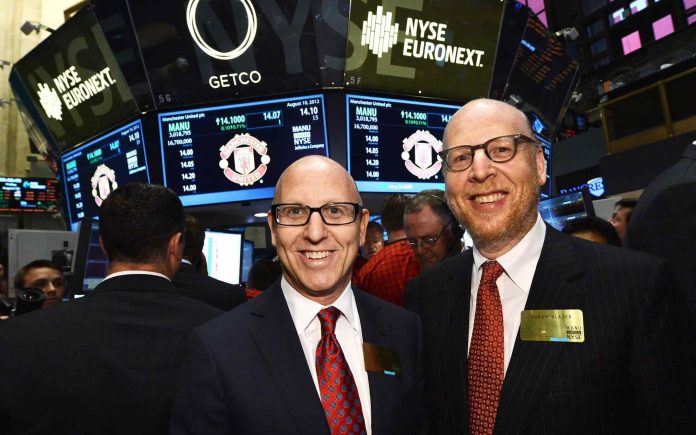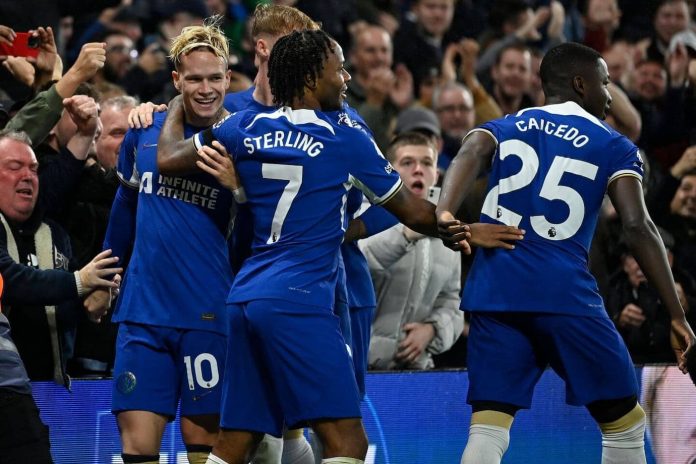Record expenditure is projected by the close of the summer, with sides in the top flight expected to reach the £2bn mark for the first time. Spending habits have increased over the past decade so we thought it worthwhile to look at Premier League net spend, club-by-club, across the last five years.
- Only two of the Premier League’s 20 clubs for next season have registered a positive net spend over the past five years.
- 2019-20 title winners Liverpool have a better net spend than nine other clubs.
- Arsenal’s imminent £105m deal for West Ham captain Declan Rice would make them the largest negative net spenders.
Premier League clubs are Europe’s chief spenders, and the economic vigour of English football’s top-flight shows little signs of letting up.
Chelsea alone spent more than the rest of Europe’s top five leagues combined in January, but that wasn’t before a Premier League record summer window this time last year with a total of £1.92bn being spend across the division.
With lucrative deals for Chelsea’s Christopher Nkunku, Liverpool’s Alexis Mac Allister and Manchester City’s Mateo Kovacic already confirmed early in the window, clubs elsewhere are busy finalising transfers to add to the rapidly ascending summer total.
Arsenal also sealed a £65m deal for Kai Havertz, while Manchester City’s decision to pull out of the race for Declan Rice could see them secure a club-record £105m signing imminently.
That would move them up into top spot for the worst net spend over the past five years, but until that is confirmed, see below for the most-up-to-date list.
All figures supplied by football database Transfermarkt
20. Brighton: £27.63m
- 23/24: £6.6m
- 22/23: £70.2m
- 21/22: £2.9m
- 20/21: £-6.7m
- 19/20: £-45.5m
The Europa League‘s newest recruits have sought to complete their business early, confirming Watford forward Joao Pedro as one of the window’s first signings.
In typical fashion, the Seagulls’ bargain-hunting hierarchy have also managed to add James Milner on a free transfer, while Borussia Dortmund’s Mahmoud Dahoud was also picked up on a free to fill the void left by Alexis Mac Allister.
Their net spend over the last five years is testament to chairman Tony Bloom’s impeccable algorithm-led approach.
19. Luton: £7.3m
- 23/24: N/A
- 22/23: £-1.09m
- 21/22: £427,000
- 20/21: £0
- 19/20: £7.9m
A new, and perhaps surprising addition to the Premier League, Luton’s improbable journey to the upper echelons of English football is refreshingly grounding amid the gluttony emanating from the Middle East.
Their higgledy-piggledy 10,000 seater on Kenilworth Road will be the smallest stadium to ever feature in the Premier League.
Nevertheless, they prevailed via the play-offs after a third placed finish in the Championship last term, which started with their largest ever single summer window ever – they spent £1.81m.
18. Burnley: £-6.46m
- 23/24: £-19.53m
- 22/23: £28.43m
- 21/22: £-7.61m
- 20/21: £1.03m
- 19/20: £-8.8m
The first of our negative net spenders, Burnley’s short hiatus away from the Premier League lasted just one season following a stylistic re-brand from former Manchester City captain-turned-manager Vincent Kompany.
Despite letting former top-flight duo Ashley Barnes and Matt Lowton leave this summer, they have made Jordan Beyer’s move permanent after he spent the season on loan from Gladbach, while Dara O’Shea also joins the defence from West Brom.
17. Bournemouth: £-27.76m
- 23/24: -£31.55m
- 22/23: £-71.02m
- 21/22: £12.19m
- 20/21: £79.96m
- 19/20: £-17.34m
Former Rayo Vellacano boss Andoni Iraola will hope to lead Bournemouth’s new lofty ambitions after sacking Gary O’Neil, despite the latter doing a remarkable job to guide them to safety.
Owner Bill Foley has not been shy of the transfer market in recent years as he attempts to transform the Cherries into a European side.
They have already added Justin Kluivert and Hamed Traore so far this summer.
16. Everton: £-33.55m
- 23/24: £27.35m
- 22/23: £21.7m
- 21/22: £5.56m
- 20/21: £-59.75m
- 19/20: £-28.38m
Despite constant jibes from rival fans in relation to their haphazard spending habits in recent years, Everton’s outgoings have gone some way to balancing the books.
Sean Dyche can start fresh after what was very nearly a perilous year for the Toffees, but a worrying lack of activity in the transfer market so far has left the Goodison faithful increasingly frustrated.
15. Brentford: £-57.51m
- 23/24: £-32.48m
- 22/23: £-40.94m
- 21/22: £-30.51m
- 20/21: £46.75m
- 19/20:-£-333,000
Despite their European push tailing off towards the end of last season, Brentford are another glowing example of a club run to great effect with limited resources.
The Bees have added Freiburg livelwire Kevin Schade for a club record fee ahead of the new campaign – he spent the second half of last season on loan in west London.
14. Crystal Palace: £-69.56m
- 23/24: N/A
- 22/23: £-35.17m
- 21/22: £-73.18m
- 20/21: £-2.05m
- 19/20: £40.84m
Reports suggest Roy Hodgson’s seemingly never-ending managerial career might not be over just yet, and a storming end to last season has provided Eagles fans with a lot to shout about.
Jefferson Lerma was picked up on a shrewd free transfer from Bournemouth, but potential outgoings have dominated summer discussions with Marc Guehi and Wilfried Zaha rumoured to be on the way out.
13. Fulham: £-95.47m
- 23/24: N/A
- 22/23: £-42.14m
- 21/22: £-13.5m
- 20/21: £-31.84m
- 19/20: £-7.26m
Fulham come in at 13th, and are the first club on our list to have registered a negative net spend in each of the last four seasons.
A lack of activity in the market so far is largely due to recent renovations to Craven Cottage, but they will have their work cut out trying to keep the likes of Palhinha and Manor Solomon after a solid season back in the top flight.
12. Sheffield United: £-96.16m
- 23/24: N/A
- 22/23: £-3.85m
- 21/22: £23.67m
- 20/21: £-53.59m
- 19/20: £-59.96m
The final of three promoted teams, Sheffield United’s two-season stint back in the second division saw them offload a whole host of key names the season before last, in favour of a squad overhaul.
It appears to have worked to great effect after dropping points in just 18 of their 46 games last season.
11. Wolves: £-151.67m
- 23/24: £37.7m
- 22/23: £-97.64m
- 21/22: £-4.96m
- 20/21: £-7.17m
- 19/20: £-79.14m
It’s safe to say that Ruben Neves’ exit was a foregone conclusion, but the decision to go to Saudi Arabia is perhaps one of the more unsettling transfers to the Arab world, with the Portuguese international only turning 26 in March.
Nevertheless, Wolves have a manager with genuine European pedigree in what will be his first full season in the Midlands, and it remains to be seen whether they will keep hold of talented returning loanees in Fabio Silva and Goncalo Guedes.
10. Liverpool: £-158.37m
- 23/24: £-36m
- 22/23: £-48.38m
- 21/22: £-49.1m
- 20/21: £-57.14m
- 19/20: £32.14m
Considering Liverpool are the only club to break Manchester City’s monopoly over the league over the past five seasons, their net spend is commendable.
The Fenway Sports Group policy is to recruit young, high-potential talents and nurture their careers, either with a view to cementing their position in the squad, or to sell at a profit further down the line.
“He’s done special stuff at Brighton and Argentina!” 🤩
Andy Robertson buzzing to see Alexis Mac Allister at Liverpool 🇦🇷🪄 pic.twitter.com/bED8k0w2BZ
— Sky Sports Premier League (@SkySportsPL) June 21, 2023
Despite a relentless end-of-season push for Champions League football, last term was fairly disastrous for the Reds. They have moved quickly to trim the dead weight off the squad, while adding World Cup winner Alexis Mac Allister for a cut price.
9. Nottingham Forest: £-173.51m
- 23/24: £-14.53m
- 22/23: £-162.6m
- 21/22: £-5.23m
- 20/21: £521,000
- 19/20: £8.33m
The return to the top flight for the first time in over two decades sparked a mass spending spree from Forest owner Evangelos Marinakis, with 30 new players arriving at the City Ground.
Attempting to gel a squad made up almost entirely of newcomers was always going to be a tall order for manager Steve Cooper, but a victory over Arsenal in the penultimate round of last season saw them secure Premier League safety.
8. Manchester City: £-230.60m
- 23/24: £-25m
- 22/23: £9.97m
- 21/22: £-38.55m
- 20/21: £-93.5m
- 19/20: £-81.9m
You would be forgiven for thinking newly-crowned treble winners Manchester City would be further down the list, but their transfer dealings over the past five years are fairly unmatched.
There are few business models in world football more efficient that City’s – it is incredible to think that they had a positive net spend last season despite bringing in Erling Haaland, Manuel Akanji and Kalvin Phillips.
The exit of club captain Ilkay Gundogan on a free would be a disastrous scenario for most clubs, but the hierarchy have been quick to move in the window by picking up Mateo Kovacic for a measly £25m.
7. Aston Villa: £-259.84m
- 23/24: N/A
- 22/23: £-39.44m
- 21/22: £-2.39m
- 20/21: £-84.25m
- 19/20: £-133.76m
With a combined fortune of over £10bn, only five owners or ownership groups are said to be wealthier than Aston Villa’s Nassef Sawiris and Wes Edens.
Their lofty ambitions for one of English football’s most iconic clubs appear to be heading in the right direction after bringing in four-time Europa League winner Unai Emery last season, who steered them to European qualification.
6. West Ham: £-268.65m
- 23/24: £1.71m
- 22/23: £-147.39m
- 21/22: £-60.06m
- 20/21: £-7.94m
- 19/20: £-54.97m
Expect West Ham’s net spend to improve significantly with the imminent sale of captain Declan Rice, who is on the verge of a £105m switch to Arsenal.
Until that is confirmed, it worth looking back at last season’s huge expenditure which has alerted the attention of Financial Fair Play.
Lucas Paqueta, Gianluca Scamacca and Nayaf Aguerd were just some of the nine names who arrived in east London, but a historic Europa Conference League triumph has more than paid dividends.
5. Newcastle: £-315m
- 23/24: £8.55m
- 22/23: £-147.05m
- 21/22: £-111.15m
- 20/21: £-33.1m
- 19/20: £-31.85m
Newcastle’s Saudi-led renaissance has been fast-tracked at a staggering rate after securing Champions League football for this season.
The Magpies had grown accustomed to ex-owner Mike Ashley tightening the purse strings, even in the face of widespread turmoil.
Fast-forward to now, the arrivals of some of the most sought after players in football, such as Bruno Guimaraes and Alexander Isak, highlight just how ambitious the new ownership group are.
4. Chelsea: £-443.34m
23/24: £61.4m
22/23: £-464.7m
21/22: £26.45m
20/21: £-162.45m
19/20: £95.96m
Dropping a record £600m on transfers in a single season left new owner Todd Boehly with operational losses of over £200m last year.
As a result, the club have set in motion a remarkable period of sales that has seen Kai Havertz, Mateo Kovacic and Kalidou Koulibaly amongst others exit already this window.
If buying a bucket load of players, only to be forced to sell a host of names the following season is the new norm, then so be it. But we must admit we expected Chelsea to be slightly further down the list.
3. Tottenham: £-457.88m
- 23/24: £-129.99m
- 22/23: £-118.93m
- 21/22: £-52.38m
- 20/21: £-83.08m
- 19/20: £-73.5m
No European football for next season underpins a calamitous season gone by for Tottenham, who endured a turbulent tail end to the year following Antonio Conte’s dramatic resignation.
Spurs fans will be hoping their business in the transfer window proves to be more successful than last year, with the £60m arrival of Richarlison, who scored just once in the league, indicative of a season to forget.
We are delighted to announce the signing of James Maddison!
Let’s go, Madders 🤍
— Tottenham Hotspur (@SpursOfficial) June 28, 2023
They have managed to fend off fellow potential suitors to complete a £40m deal for James Maddison, who should slot in with ease with new manager Ange Postecoglu expected to bring his expansive brand of football to north London.
2. Arsenal: £-470.06m
- 23/24: £-61m
- 22/23: £-144.08m
- 21/22: £-116.25m
- 20/21: £-57.14m
- 19/20: £-91.59m
The soon-to-be-completed deal for Declan Rice will signal the first time Arsenal have dropped triple digits on a new signing, but after going toe-to-toe with City for the vast majority of last season, senior figures at the club are willing to back Mikel Arteta with heavy investment.
Kai Havertz’s confirmed move from Chelsea looks to be the first of a string of names to arrive in north London, with a deal for Ajax’s Jurrien Timber also on the verge of completion, while rumours of another addition to the midfield refuse to subside.
All-in-all, another very expensive window for the Gunners will likely see their net spend reach top spot, but it does also depend on how many players they are willing to offload. Florian Balogun, Sambi Lokonga, Nuno Tavares and Cedric Soares are all expected to make way.
1. Manchester United: £-479.39m
- 23/24: N/A
- 22/23: £-196.62m
- 21/22: £-94.8m
- 20/21: £-54.96m
- 19/20: £-133.02m
A successful debut season for Erik Ten Hag which resulted in Champions League qualification and League Cup silverware has left united fans feeling optimistic for next season.
However, the Red Devils have shown a worrying lack of activity in the window so far, and reports suggest that the club are looking to raise funds from a mass exodus of as many as 11 players before adding further acquisitions.
Last season’s business has turned out to be largely successful, but it came at a huge price which appears to have halted their ambitions at this moment in time.
Related Football Content
- Football Betting Tips 2023 – Latest Picks & Football Tips
- Football Predictions June 2023
- Football Accumulator Tips 2023 – Latest Acca Betting Tips
- Best Correct Score Tipsters on Telegram & Social Media 2023
Add Sportslens to your Google News Feed!







